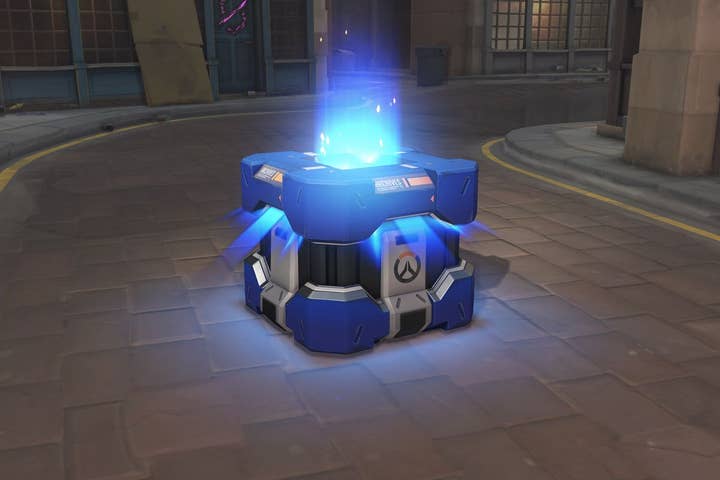NHS mental health director calls for loot box ban
UPDATE: UKIE responds, emphasising that industry already addresses spending caps and disclosed drop rates
Original story (January 20, 2020): The mental health director of Britain's NHS has called on the games industry to ban the use of loot boxes in its titles.
In a statement on the NHS website, the organisation linked the monetisation mechanic to gambling addiction, adding that it was particularly concerned about the impact on children.
Mental health director Claire Murdoch warns that developers and publishers are in danger of "setting kids up for addiction" by using chance-based purchases in their titles.
She cited figures from the Gambling Commission that show 55,000 children in the UK have been classed as having a gambling problem. The NHS' own estimates report there are 400,000 people in England have a gambling problem.
Loot boxes do not come under the remit of the Gambling Commission as they have not been classified as gambling -- something Murdoch describes as a "loophole" based largely on the fact that there is no official way to convert digital prizes into cash (despite the existence of various third-party sites and eBay accounts that sell skins, rare items and gaming accounts with sought after cosmetics).
Murdoch urges the industry to ban the sale of games with loot boxes that are played by children, always make drop rates clear, introduce "fair and realistic spending limits", and do more to raise awareness among parents of the risks connected to in-game spending.
"Frankly no company should be setting up kids for addiction by teaching them to gamble on the content of these loot boxes," she said. "No firm should sell to children loot box games with this element of chance, so yes those sales should end.
"Young people's health is at stake, and although the NHS is stepping up with these new innovative services available to families through our Long Term Plan, we cannot do this alone, so other parts of society must do what they can to limit risks and safeguard children's wellbeing."
Murdoch also cited a report by the Royal Society of Public Health that found the more than half of young people see both loot boxes and skin betting as "forms of highly addictive gambling."
She also offered the example of "one game even [launching] a virtual casino," referring to Grand Theft Auto Online's casino update last summer -- a new featured that happened to go live during an ongoing government inquiry into the immersive and addictive technologies (of which loot boxes became a prominent talking point).
The inquiry's conclusion featured recommendations similar to those of Murdoch, including a ban on the sale of games with loot boxes to children.
As part of the NHS' Long Term Plan to improve mental health, the health service has opened a new treatment centre with up to 14 new NHS gambling clinics planned across the UK.
Update: UK trade body UKIE has issued a statement to GamesIndustry.biz responding to Murdoch's statement, emphasising that the industry already addresses some of these issues, such as spending limits.
"The games industry takes its responsibility to players very seriously and acknowledges that some people are concerned," a spokesperson said. "This is why the industry provides guidance on how to manage, limit or turn off spend in games with the help of family controls, through a number of public information sites across the world."
"The games industry has already committed to measures to inform players about purchasing choices, including in regards to loot boxes. New platform policies will require optional paid loot boxes in games to disclose information on the relative rarity or probability of obtaining randomized virtual items by the end of 2020, with many companies doing this voluntarily already.
"The government has committed to conducting a review of the Gambling Act, which loot boxes will form a part of. We look forward to working constructively with them on it.”

